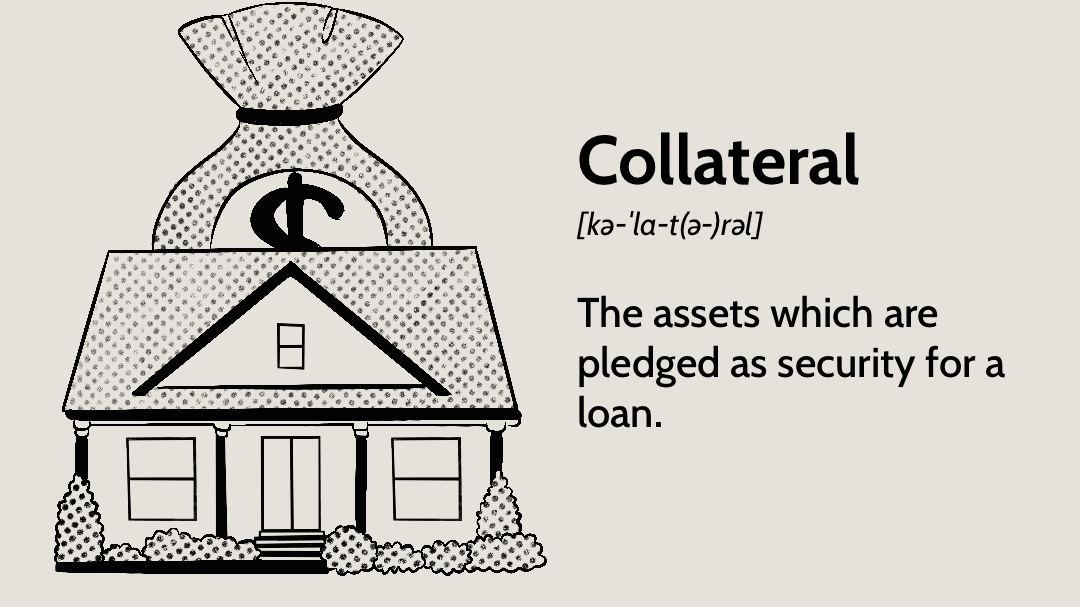All about Taken Out Loan
Oct 04, 2023 By Susan Kelly
When short-term financing is no longer an option, a take-out loan may be used as a permanent solution. Typically, these loans take the form of mortgages with fixed, amortizing monthly payments secured by the borrower's assets. Large financial corporations like health coverage or investing firms often sponsor take-out loans, whereas banks & savings, and loan associations provide shorter-term loans like construction loans.
Recognizing Take-Out Loans
A take-out loan is a truly innovative loan taken out to pay off an existing one, usually one with a shorter term & higher interest rate. This kind of loan requires a comprehensive credit application in order to be approved. A take-out loan is a loan taken out from a creditor in order to settle existing obligations. One common way that people utilize take-out loans is as a kind of long-term personal financing to settle up with other lenders. Most often, they are utilized in the real estate building industry to enable borrowers to replace a short-term construction loan with one that has more advantageous conditions. You have the option of making monthly payments or a large balloon payment when the take-out loan matures.
How Do Enterprises Utilize Take-Out Loans?
All property development projects need a substantial outlay of capital before any progress is made on the building. As a result, construction firms often need to get expensive short-term loans to get through the beginning stages of building. A deferred draw term loan is an option for construction businesses, with principal payments staggered dependent on the completion of certain construction milestones. They might also consider applying for a short-term loan.
Borrowers of many types of short-term loans receive principal distributions that are due at a later date. Loans typically require a balloon payment upon maturity, but sometimes the borrower has the option of making a single payment. This is the best time for a borrower to refinance into a better rate and term loan.
Illustration of a Take-Out Loan

Let's say XYZ Corporation has been given the go-ahead to construct a commercial real estate office complex over the next 12-18 months. To cover the cost of construction, it may take out a short-term loan that must be paid back in full within 18 months. The property goals are accomplished, and the structure is finished twelve months ahead of time. XYZ is in a stronger bargaining position now that the finished building may be utilized as security. As a result, it takes out a take-out loan, using the funds from that to prepay the original debt by six months.
The new loan offers XYZ a lower interest rate than the original loan and a longer repayment period of fifteen years. It may pay off its short-term loan seven months early with the proceeds from the take-out loan, so reducing its interest expense. Using the finished building as security, XYZ has been given fifteen years to repay its fresh take-out loan at a much-reduced interest rate.
Things to Consider Before Taking out A Loan
Determine the Total Interest
You may get a better idea of the interest rate you could get on a loan by taking into consideration the sum you would like to borrow in addition to your credit. The total cost of a loan is affected by the interest rate. The total cost of a loan may be calculated with the help of a loan calculator. An extended loan term often results in cheaper monthly payments but may result in higher interest costs throughout the life of the loan. Take a car loan for $15,000 at a rate of 3.5 percent as an illustration. The interest on a $30,000 loan with a three-year duration would add another $823 to the overall cost of the loan, for a grand total of $4,440 every month. In contrast, if you extended the very same loan over seven years, the monthly bill would be $232, but you would wind up paying twice the interest throughout the life of the loan.
Loan Comparison
To better evaluate your loan alternatives and choose the best one for your needs, it is recommended that you become prequalified with numerous lenders. Think about origination costs and prepayment fines in addition to the interest rate & loan length when comparing loans. If you are denied a loan by one financial institution, you may be able to apply with another that has more lenient standards.
Think About Collateral

Even if your credit isn't perfect, you may be able to acquire a loan if you're willing to put up collateral to secure the loan and reduce the risk to the lender. Collateral is anything of value that you put up as security for a loan, with the lender having the right to seize it if you don't pay back the money. A vehicle, for example, is frequently used as collateral to get an auto loan, but a house is normally used to acquire a mortgage or home equity loan. Depending on the terms of the loan & your credit history, collateral may also be required for certain credit cards & personal loans. If you're going to take out a loan, you should think about what would occur if you lost the collateral. What would you do, for instance, if you were late on your car payments and also the lender confiscated your vehicle, making it impossible for you to travel to work and manage basic needs like food and shopping?

What Is a Budget? Tips To Make It
Dec 24, 2023
Budgeting is an important foundational skill for managing one's own money. However, the term "budget" might evoke negative connotations. Additionally, there are many approaches to budgeting, but ultimately, it all comes down to arranging one's financial resources and keeping tabs on their use. Budgeting should liberate you, not bind you.

JPMorgan's Business Model
Nov 17, 2023
Consumers, small businesses, major corporations, governments, and other clients can get financial services from JPMorgan. The company's Consumer and Community Banking section generates the most revenue. The largest contributor to net profits is the Corporate and Investment Bank business.

A Guide To Investing Your First $100,000
Feb 15, 2024
Security and long-term aspirations are two reasons to save. A solid financial foundation gives you the confidence to handle unexpected bills, save for retirement, and live comfortably.

Gold vs. Platinum Amex Card: What's the Difference?
Dec 21, 2023
Very few cards offer the same benefits and perks as the Platinum Card from American Express and the American Express Gold Card. Both cards come with a high earnings potential, high-quality welcome bonus offers, and an array of perks that, if used by an appropriate person, could easily surpass the annual cost of ownership.

The best funds for short-term bonds
Feb 18, 2024
Most investors prioritize finding a short-term bond fund with a low expense ratio. Consequently, finding cheap short-term bond funds should be an investor's priority due to the poor return potential of such assets.

Know Why IRA, Roth IRA, and 401(k) Contributions Are Limited
Oct 10, 2023
The government places limits on IRA and 401(k) contributions so that top incomes don't get a disproportionate share of the benefits. Limits on contributions are age- and plan-specific. These maximum annual contributions and income levels are reviewed and adjusted annually for inflation.

Things to Consider When Starting a Mutual Fund
Nov 10, 2023
Investors who take part in a company-sponsored retirement plan or who have an individual investment portfolio are frequently confronted with a bewildering selection of funds to choose from, many of which they do not fully understand in terms of their potential impact on the value of their investment as a whole.

Way to Calculate the Intrinsic Value of Preferred Stocks
Feb 06, 2024
Though they have the status of equity securities, steady payouts and lack of voting rights make them more akin to debt instruments. Preferred shareholders get dividends before common shareholders and have preference in the case of a bankruptcy or liquidation of the company's assets.

Creating financial projections for your business
Dec 30, 2023
creating financial projections for your business requires you to work on your business progress and promotion with proper planning and effective outcomes by managing risks.

Best Time To Buy A Car
Dec 19, 2023
A new car is one of the most significant purchases you may make in any given year, regardless of whether you're buying it as a present for someone else or as a treat for yourself.

Learning and Determining the Value of a Preferred Stock
Jan 24, 2024
Preferred stock prices are calculated by discounting the present value of dividends paid in the future by the stock's rate of return. Due to the long-term nature of the preference attached to this stock, the Price of a share of preferred stock is typically calculated as the dividend per share multiplied by the required rate of return.

Life Estate vs. Irrevocable Trust: An Overview
Feb 28, 2024
Irrevocable trusts and life estates are utilized in estate planning. Transferring substantial assets like a house in the life estate or irrevocable trust could help an individual qualify for Medicaid; however, this will depend on the state's law. Life estates share ownership between the receiver and the giver.